Trending
-
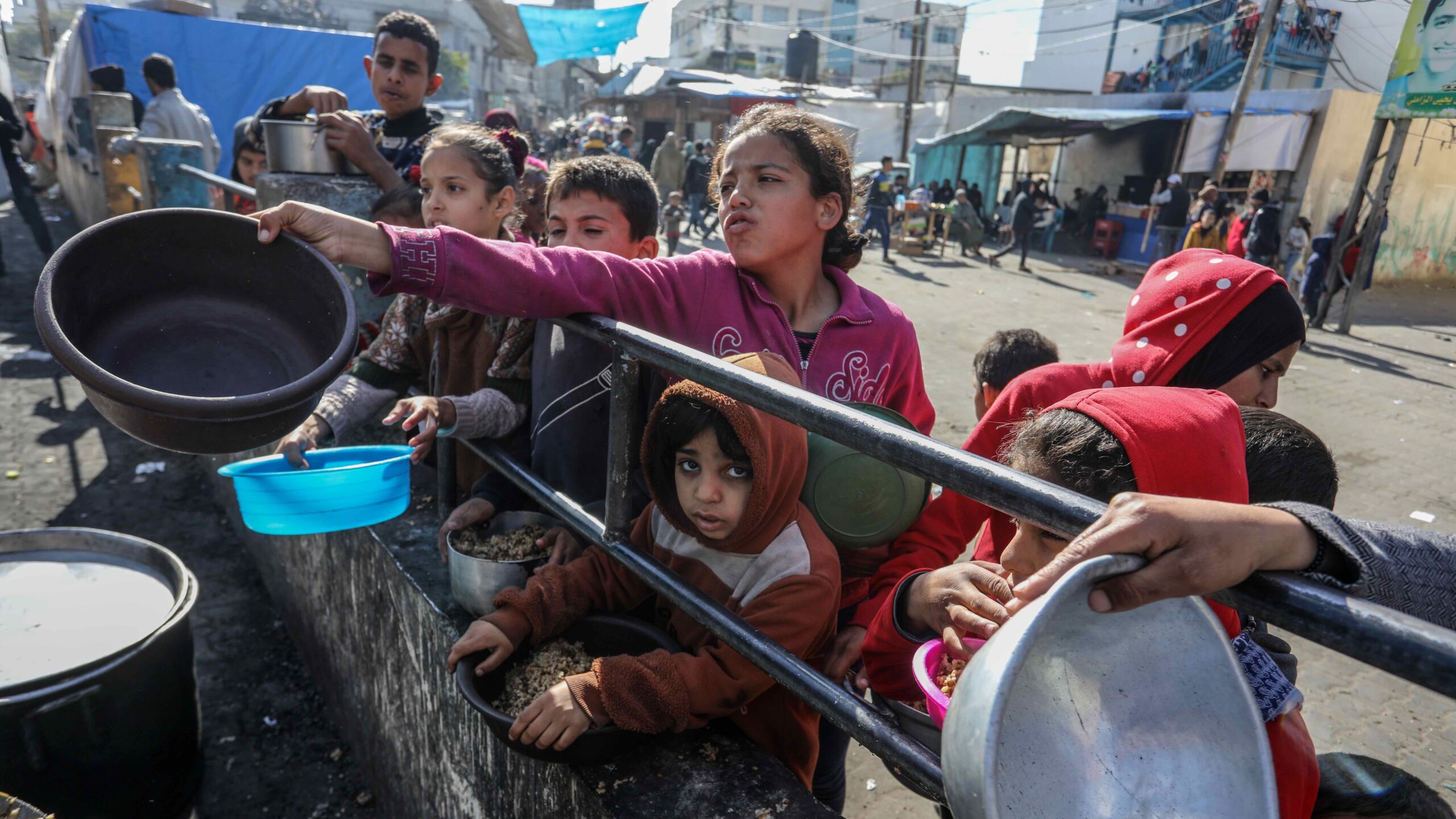
Gaza’s catastrophe will have long-lasting impacts on lives and livelihoods
Spreading starvation and ruined livelihoods.
-
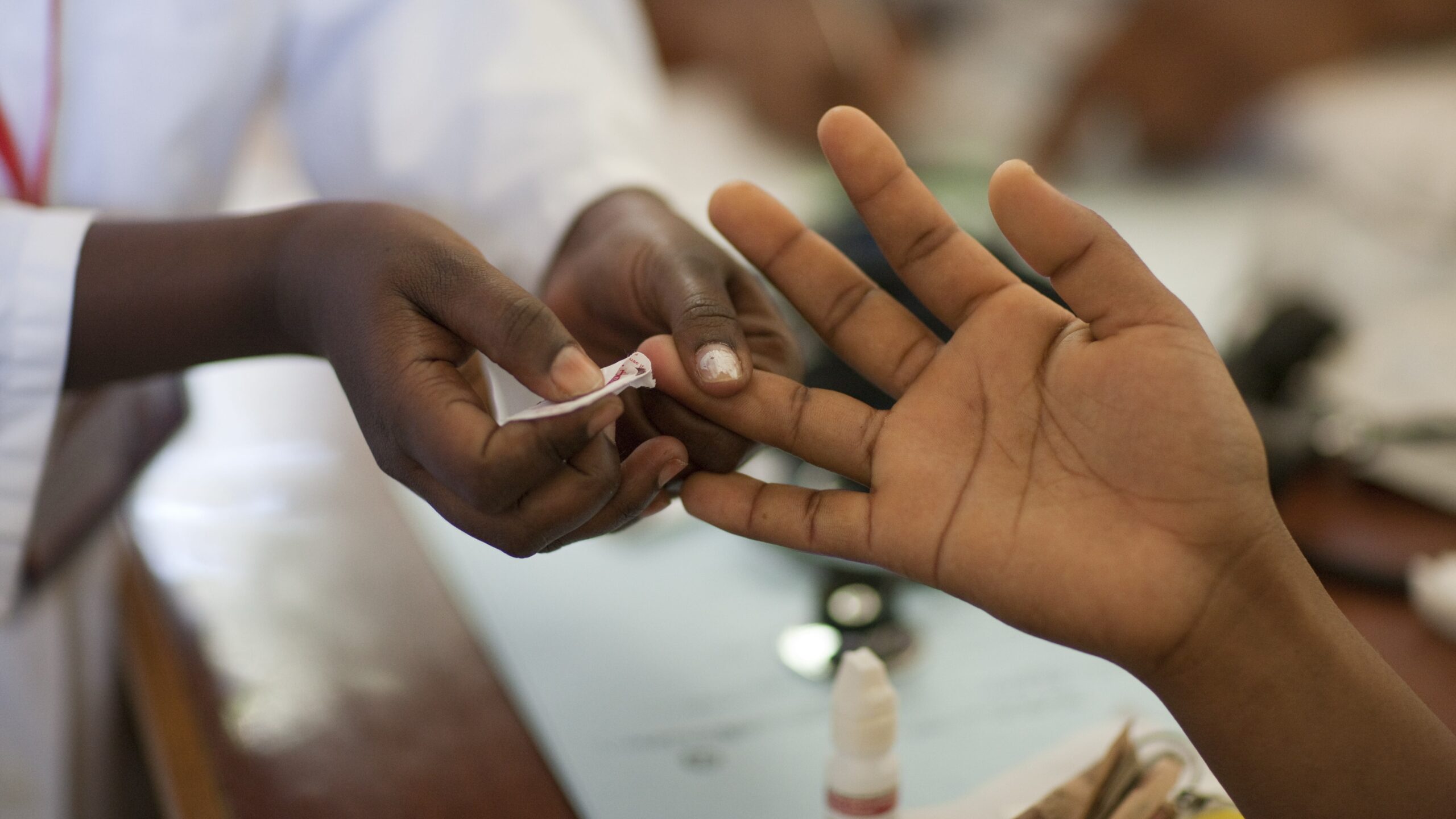
Ethiopia’s new digital health information system contributes to major improvements in maternal and health care
A study shows dramatic gains in a short time frame.
-
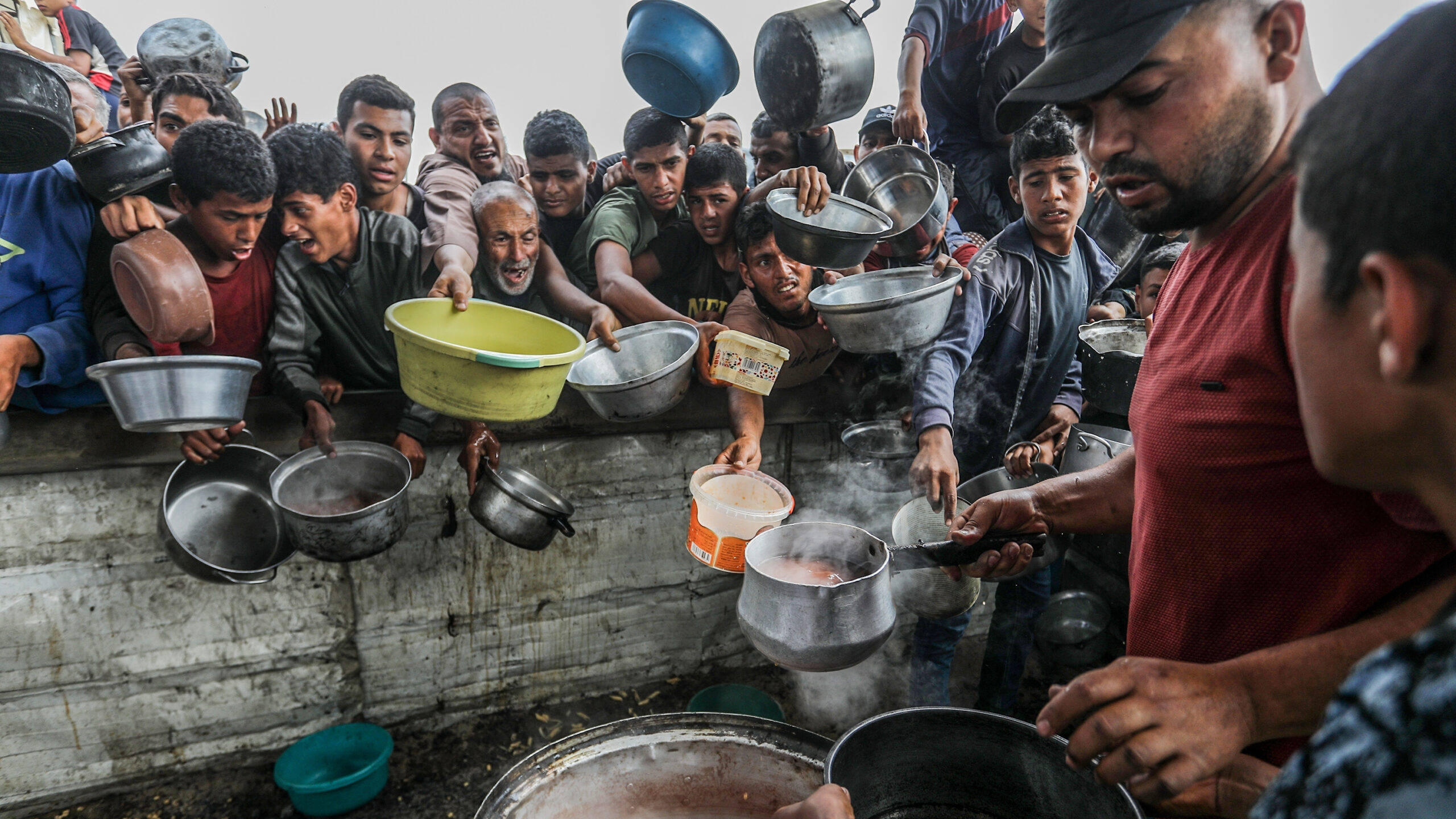
The struggle to get food aid from Egypt to Gaza: Insights from the Egyptian Food Bank
With famine looming, deliveries face a gauntlet of obstacles.
-
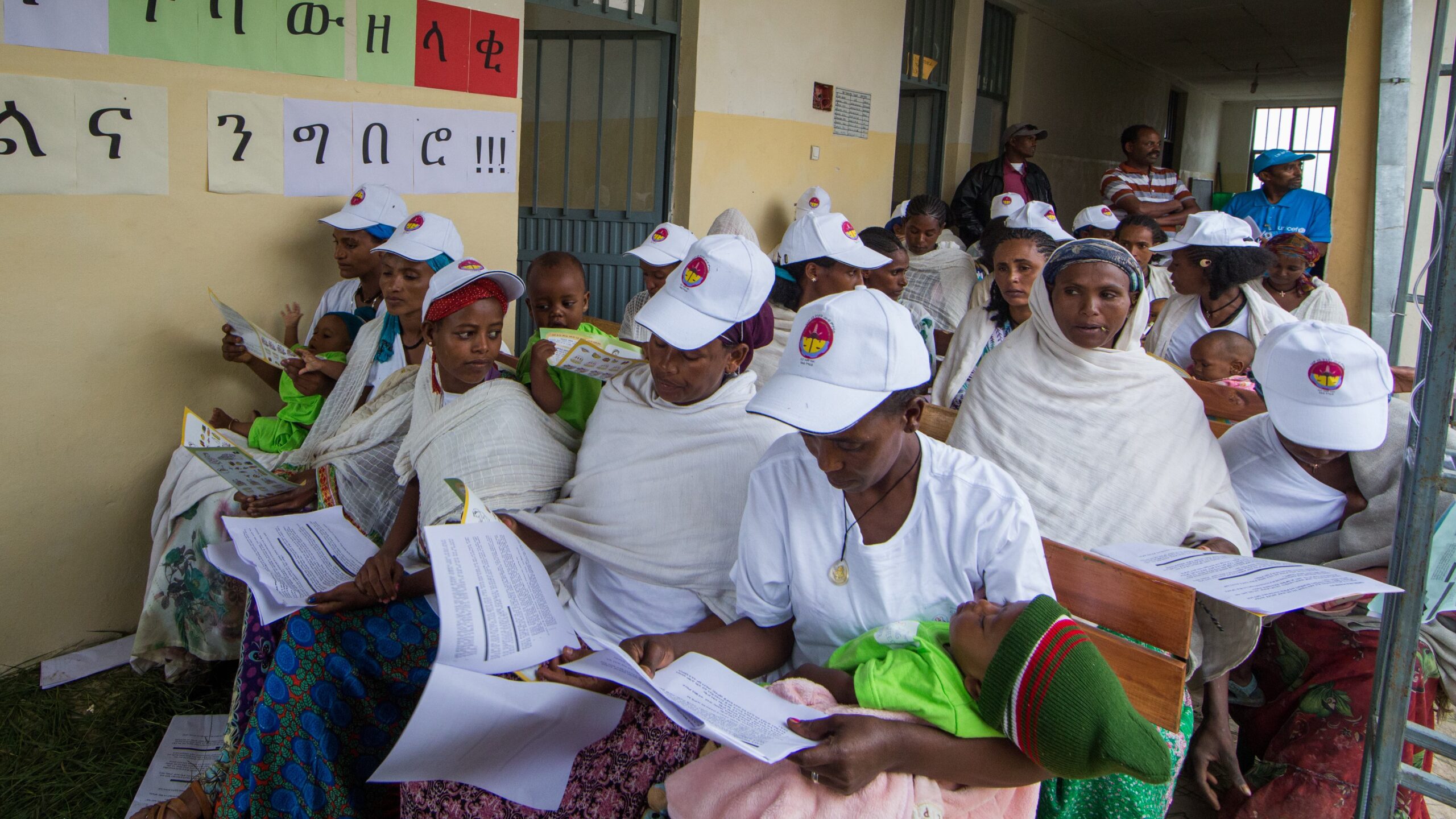
World Breastfeeding Week: Research shows the vital importance of support for mothers and infants
Insights from IFPRI research.
-

Sudan’s war is an economic disaster: Here’s how bad it could get
Widespread job losses and rising poverty.
Experts in Our Field
Global, regional, and national food systems face major challenges and require fundamental transformations. More than ever, responding to these challenges will require a systems-oriented, multidisciplinary approach to reshape food systems so they work for all people sustainably.
526
experts across the world
70+
countries where we work
#1
in the field of Agricultural Economics
20,000+
research outputs
Meet a researcher
With his deep expertise in global agricultural policy, Joe Glauber has been a pivotal contributor to IFPRI’s Ukraine War blog series. Through his insightful analysis and nuanced understanding of the conflict’s impact on food systems, Joe has shed light on the intricate linkages between agriculture, geopolitics, and food security in the region. Don’t miss the opportunity to explore his thought-provoking contributions that offer invaluable perspectives on this complex issue.


From our YouTube channel
Dan Gilligan, Unit Director (Introduction)
Dan Gilligan, the Poverty, Gender, and Inclusion unit director discusses how PGI addresses gender, poverty, food insecurity, and low levels of nutrition, health, and education.
Our Events
-
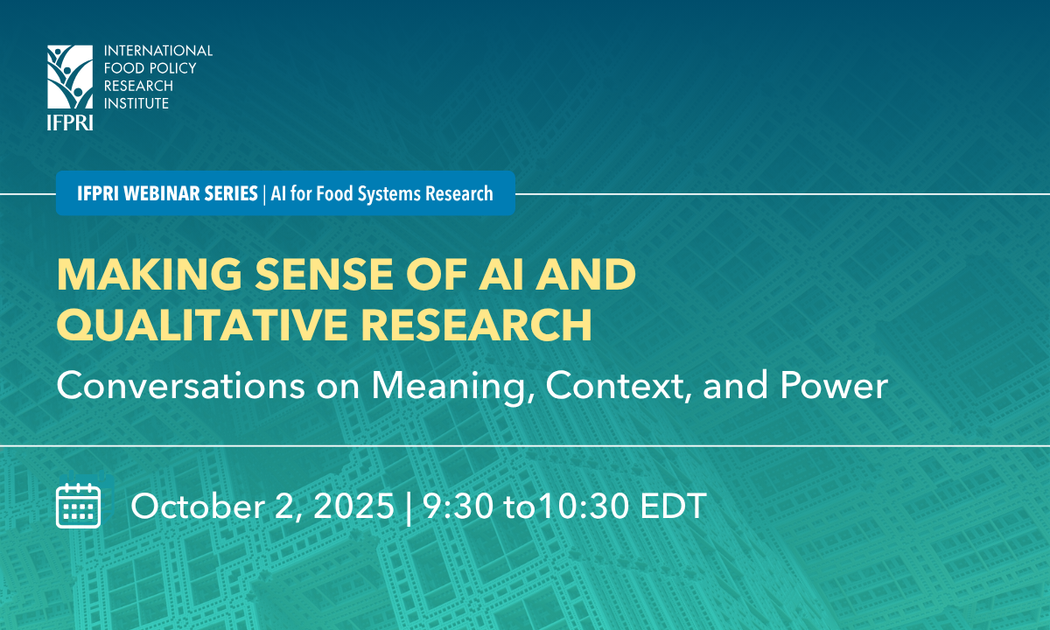
Making Sense of AI and Qualitative Research: Conversations on Meaning, Context, and Power
As artificial intelligence tools become more common in research workflows, qualitative researchers face both new opportunities and critical challenges. Can AI support interpretive and nuanced research? What risks might it introduce—and how can researchers remain attentive to nuance, positionality and power? This webinar explores the use of AI in qualitative research. Drawing on her experience…
-
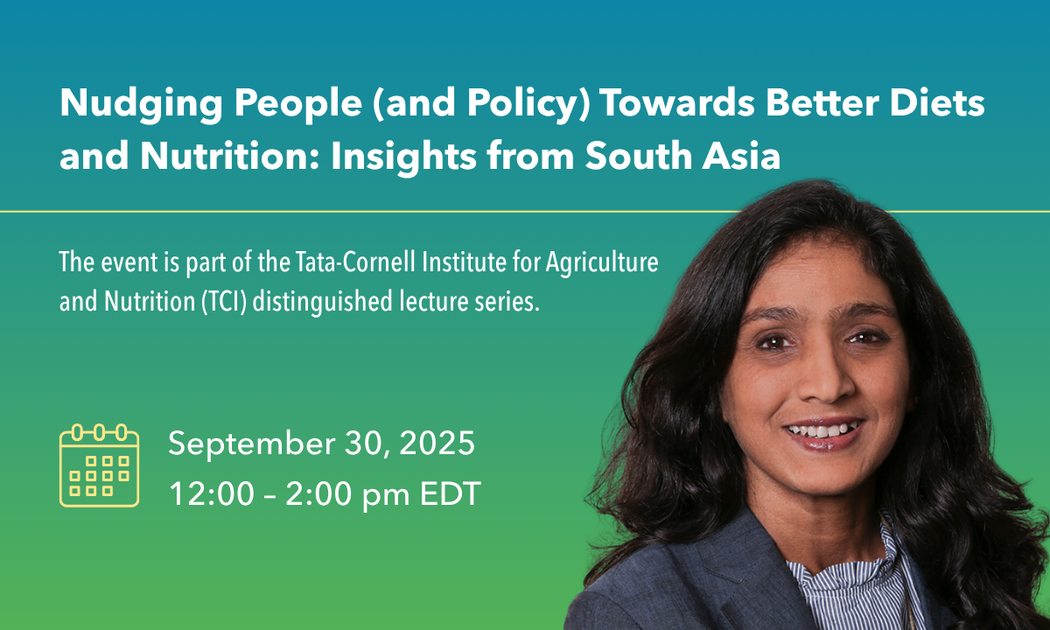
Nudging People (and Policy) Towards Better Diets and Nutrition: Insights from South Asia
Purnima Menon is the senior director for food and nutrition policy at the International Food Policy Research Institute (IFPRI). She is also the acting director for transformative strategies. Menon has wide-ranging research experience in evaluating large-scale programs in nutrition, health systems, agriculture, gender, technology and food systems. She has authored more than 200 peer-reviewed publications, including…
-
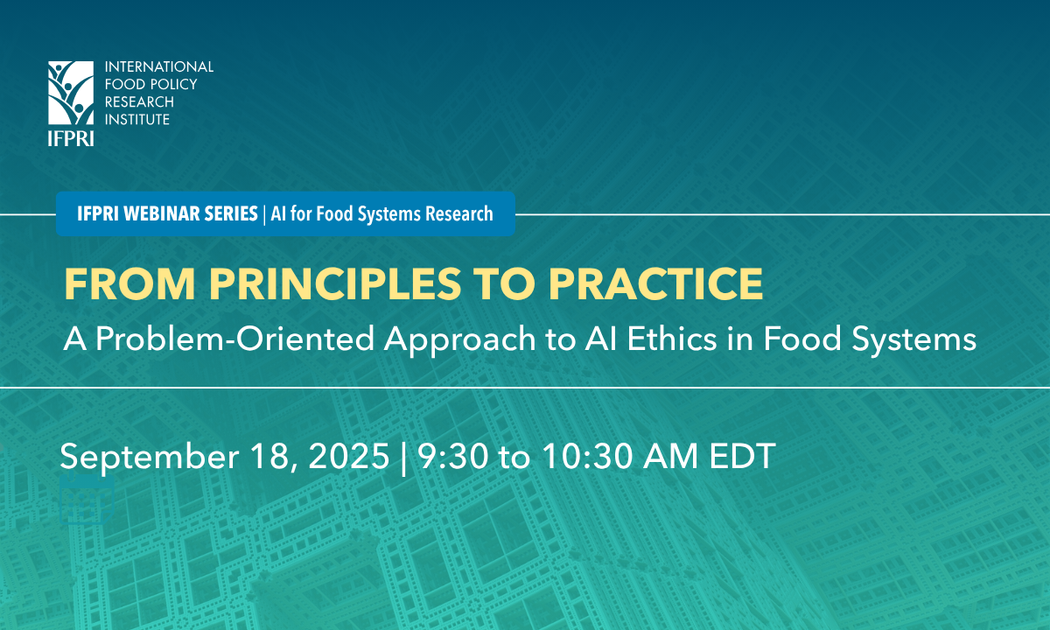
From Principles to Practice: A Problem-Oriented Approach to AI Ethics in Food Systems
This webinar offers a practical introduction to AI ethics, with a focus on how ethical principles translate into real-world decisions. As AI tools are increasingly deployed in food systems research and innovation, questions around fairness, accountability, consent, and transparency are no longer abstract—they are critical design choices with tangible implications. Together, the speakers will explore…
Recent publications
Journal Article
Fostering social inclusion in development-oriented digital food system interventions
2024Steinke, Jonathan; Schumann, Charlotte; Langan, Simon J.; Müller, Anna; Opola, Felix Ouko; Ortíz Crespo, Berta; Etten, Jacob vanJournal Article
Causes and consequences of child growth faltering in low-resource settings
2023…more
Cai, Wilson; Li, Haodong; Nguyen, Anna; Pokpongkiat, Nolan N; Djajadi, Stephanie; Seth, Anmol; Jung, Esther; Chung, Esther O; Jilek, Wendy; Subramoney, Vishak; Hafen, Ryan; Häggström, Jonas; Norman, Thea; Brown, Kenneth H; The Ki Child Growth ConsortiumJournal Article
“It doesn’t matter at all—we are family”: Titling and joint property rights in Myanmar
2024Lambrecht, Isabel B.; Synt, Nang Lun Kham; Ei Win, Hnin; Mahrt, Kristi; Win, Khin Zin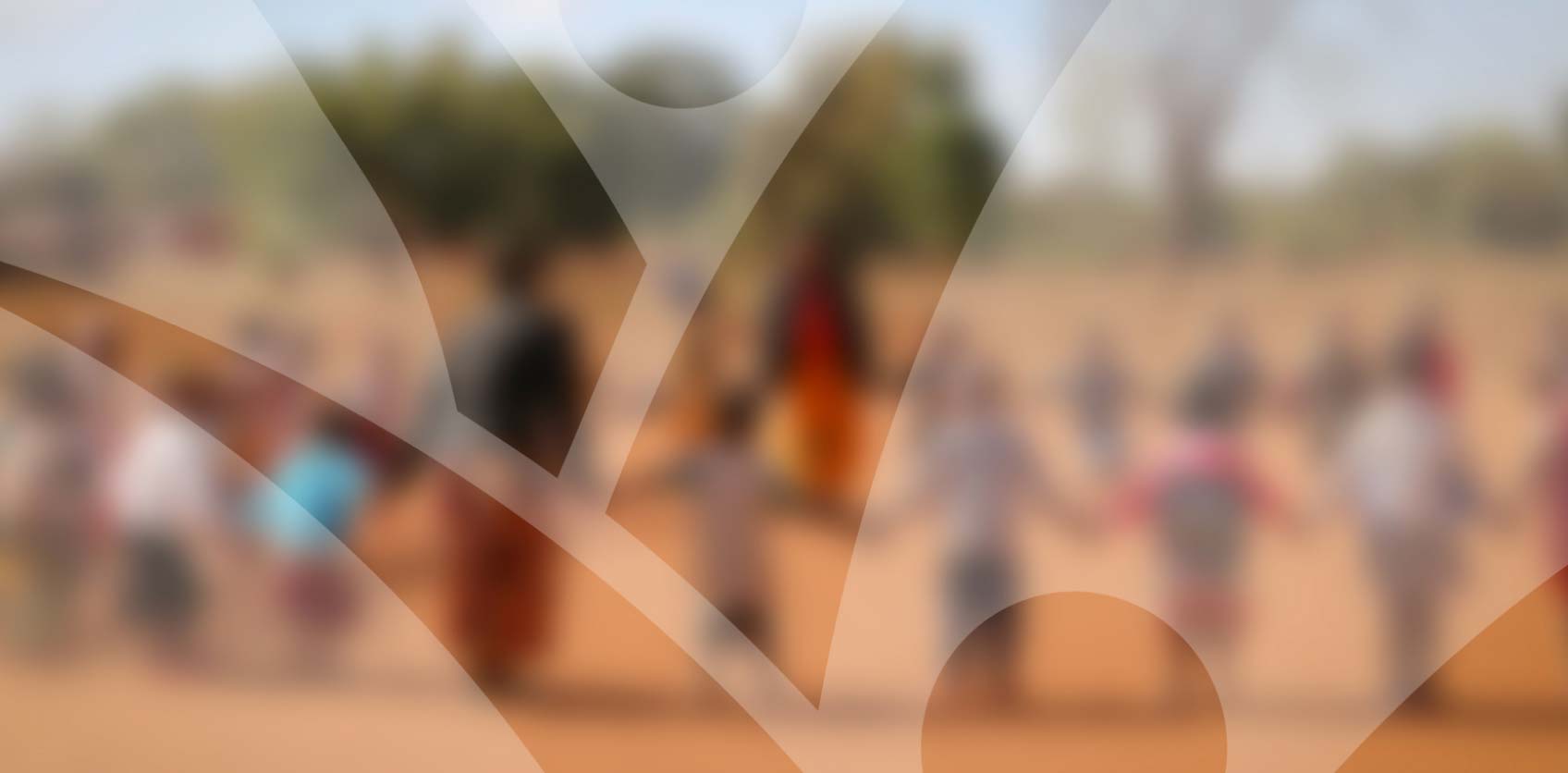
Child Nutrition in Malawi

Community-based childcare centers (CBCCs) are a key platform to roll out Malawi’s National Early Childhood Development policy. At these centers, families and community members come together to provide childcare services and meals for young children. The Nutrition Embedded Evaluation Program (NEEP) intervention was developed to use CBCCs for promoting child health and nutrition. The approach integrated local knowledge and guidance from experts at the University of Malawi and Save the Children to provide trainings on nutrition and agricultural production, linking with micro-lending program, and distributing seeds of nutritious foods to households.
IFPRI and Save the Children implemented a rigorous impact evaluation to see whether this approach was effective and could be replicated or scaled up across Malawi. In a new visual story, Aulo Geli, Amy Margolies, and Brian McNamara review the significant positive impacts of this program and lessons for the future.



